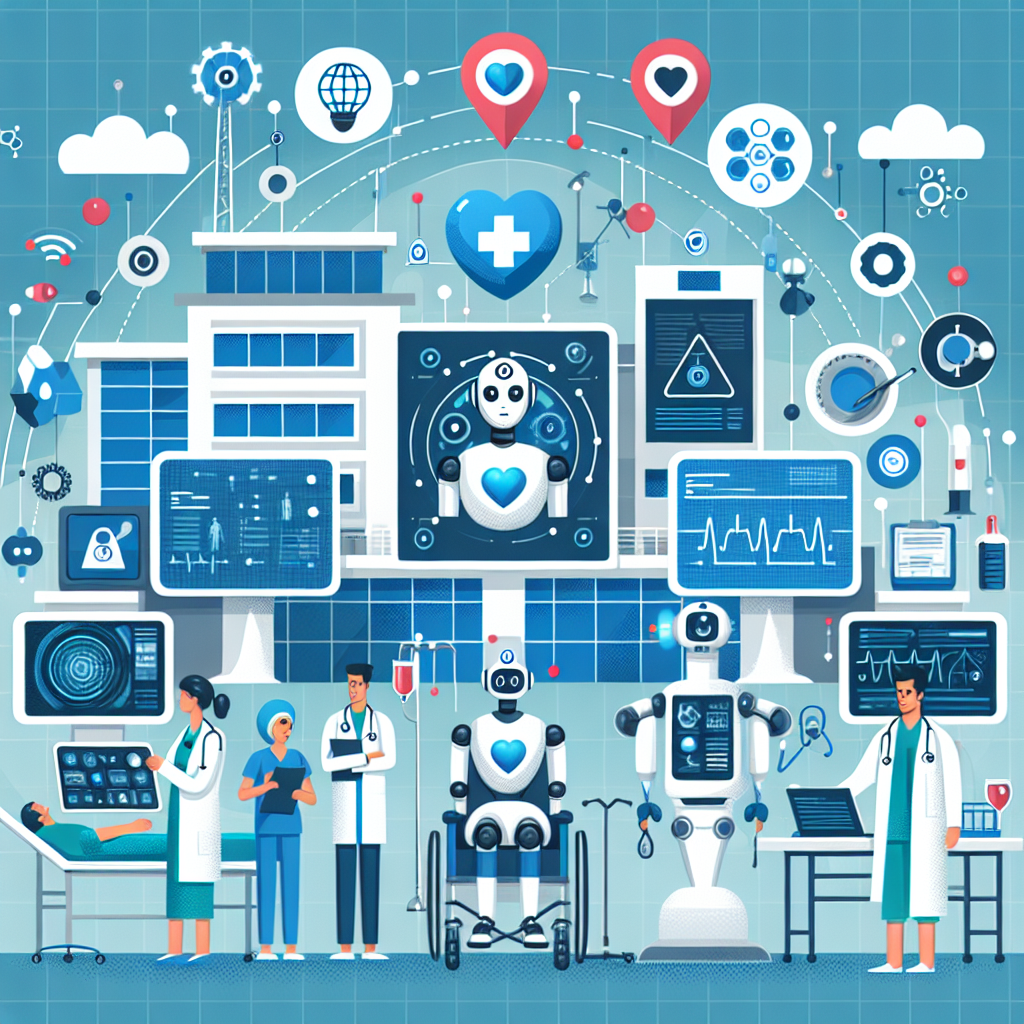Artificial Intelligence (AI) has become a game-changer in the healthcare industry, revolutionizing the way operations are conducted and improving patient care. From streamlining administrative tasks to assisting in medical diagnosis, AI is transforming the healthcare sector in numerous ways. In this article, we will explore how AI is streamlining healthcare operations and the impact it is having on the industry.
1. Administrative Efficiency
One of the primary ways AI is streamlining healthcare operations is by improving administrative efficiency. AI-powered systems can automate mundane tasks such as appointment scheduling, billing, and insurance processing, reducing the burden on healthcare staff and allowing them to focus on more critical aspects of patient care. This not only saves time and resources but also minimizes errors that can occur due to manual data entry.
2. Medical Diagnosis and Treatment
AI is also making significant strides in medical diagnosis and treatment. Machine learning algorithms can analyze large datasets of patient information and medical records to identify patterns and predict potential health issues. This can help healthcare providers make more accurate diagnoses and develop personalized treatment plans for patients. AI can also assist in monitoring patients’ progress and adjusting treatment plans in real-time based on the data collected.
3. Remote Patient Monitoring
Another area where AI is streamlining healthcare operations is in remote patient monitoring. AI-powered devices can track patients’ vital signs and health metrics, allowing healthcare providers to monitor patients’ health remotely and intervene when necessary. This can be particularly beneficial for patients with chronic conditions who require continuous monitoring and care.
4. Drug Discovery and Development
AI is also being used to streamline the drug discovery and development process. By analyzing vast amounts of data, AI algorithms can identify potential drug candidates more quickly and accurately than traditional methods. This can significantly reduce the time and resources required to bring new drugs to market, ultimately benefiting patients by providing them with more effective treatments in a shorter timeframe.
5. Predictive Analytics
AI is enabling healthcare providers to leverage predictive analytics to forecast future trends and make informed decisions. By analyzing historical data and identifying patterns, AI algorithms can predict patient outcomes, identify high-risk patients, and optimize resource allocation. This can help healthcare organizations improve patient care, reduce costs, and enhance operational efficiency.
6. Enhanced Imaging and Diagnostics
AI is also transforming medical imaging and diagnostics. AI-powered algorithms can analyze medical images such as X-rays, MRIs, and CT scans to detect abnormalities and assist in diagnosis. This can help healthcare providers make more accurate and timely diagnoses, leading to improved patient outcomes. AI can also help radiologists and other healthcare professionals prioritize and triage cases based on the severity of the findings.
7. Patient Engagement and Education
AI is empowering patients to take a more active role in their healthcare by providing them with personalized information and resources. AI-powered chatbots and virtual assistants can answer patients’ questions, provide educational materials, and assist in navigating the healthcare system. This can improve patient engagement, enhance communication between patients and healthcare providers, and ultimately lead to better health outcomes.
FAQs
Q: How is AI improving patient care in healthcare operations?
A: AI is improving patient care by streamlining administrative tasks, assisting in medical diagnosis and treatment, enabling remote patient monitoring, enhancing drug discovery and development, leveraging predictive analytics, transforming medical imaging and diagnostics, and empowering patients through engagement and education.
Q: What are some examples of AI applications in healthcare operations?
A: Some examples of AI applications in healthcare operations include automated appointment scheduling, billing, and insurance processing; medical diagnosis and treatment assistance; remote patient monitoring devices; drug discovery and development algorithms; predictive analytics models; medical imaging and diagnostics tools; and patient engagement chatbots and virtual assistants.
Q: How is AI helping healthcare providers make more informed decisions?
A: AI is helping healthcare providers make more informed decisions by analyzing large datasets of patient information, identifying patterns and trends, predicting patient outcomes, detecting abnormalities in medical images, and providing personalized information and resources to patients. This enables healthcare providers to deliver more accurate diagnoses, develop personalized treatment plans, monitor patients remotely, and engage patients in their care.
In conclusion, AI is revolutionizing healthcare operations by streamlining administrative tasks, improving medical diagnosis and treatment, enabling remote patient monitoring, enhancing drug discovery and development, leveraging predictive analytics, transforming medical imaging and diagnostics, and empowering patients through engagement and education. The adoption of AI in healthcare is expected to continue to grow, leading to more efficient, effective, and personalized care for patients.

